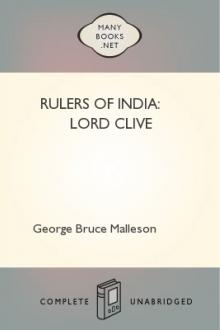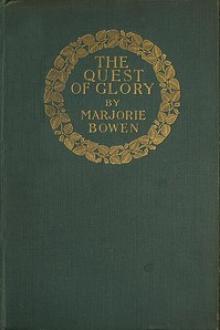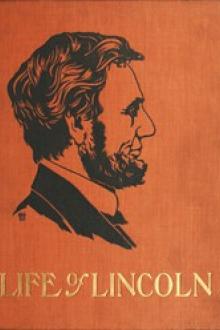Genre History. Page - 3

ribute to the better understanding of the narrative of the events which plunged the English into war in 1745, if we take a bird's-eye view of the peninsula generally, particularly of the southern portion, as it appeared in the year preceding.
Of India generally it is sufficient to say that from the year 1707, when the Emperor Aurangzeb died, authority had been relaxing to an extent which was rapidly bringing about the disruption of the bonds that held society together. The invasion of Nadír Sháh followed by the sack of Delhi in 1739 had given the Mughal dynasty a blow from which it never rallied. Thenceforward until 1761, when the third battle of Pánípat completed the catastrophe, the anarchy was almost universal. Authority was to the strongest. The Sallustian motto, 'Alieni appetens sui profusus,' was the rule of almost every noble; the agriculturists had everywhere abundant reason to realize 'that the buffalo was to the man who held the bludgeon.'[1]
[Footnote 1: Th

t of the Burning Pestle" (iii. 4): "There is a pretty tale of a witch that had the devil's mark about her, that had a giant to be her son, that was called Lob-lye-by-the-Fire." Grimm[17] mentions a spirit, named the "Good Lubber," to whom the bones of animals used to be offered at Manseld, in Germany. Once more, the phrase of "being in," or "getting into Lob's pound," is easy of explanation, presuming Lob to be a fairy epithet--the term being equivalent to Poake-ledden or Pixy-led.[18] In "Hudibras" this term is employed as a name for the stocks in which the knight puts Crowdero:
"Crowdero, whom in irons bound, Thou basely threw'st into Lob's pound."
[16] Mr. Dyce considers that Lob is descriptive of the contrast between Puck's square figure and the airy shapes of the other fairies.
[17] "Deutsche Mythologie," p. 492.
[18] See Keightley's "Fairy Mythology," pp. 318, 319.
It occurs, also, in Massinger's "Duke of Milan" (iii. 2), where it means "behind the arras:"

eaver and entered the cathedral, followed softly by his companion. For a moment they stood motionless within the door, which slipped silently into place behind them.
The air was oppressive with the powerful perfume of strong incense, and yet even more bitterly cold than the outer night; the light was dim, flickering, rich, and luxurious, and came wholly from hanging lamps of yellow, blue, and red glass. In what appeared the extreme distance, the altar sparkled in the gleam of two huge candles of painted wax, and behind and about it showed green translucent, unsubstantial shapes of arches and pillars rising up and disappearing in the great darkness of the roof, which was as impenetrable as a starless heaven.
The church was bare of chair or pew or stool; the straight sweep of the nave was broken only by the dark outlines of princely tombs where lay the dust of former Bohemian kings and queens: their reclining figures so much above and beyond humanity, yet so startlingly like life, could be seen in

urn taught it to other harpers, and these, by the orders of Arthur and Lancelot, went into Wales and Cornwall to sing it everywhere.
Meanwhile King Mark's crown had been in great danger. For his country had been invaded by an army from Session, led by a noted warrior named Elias, who drove the forces of Cornwall from the field and besieged the king in his castle of Tintagil. And now Tristram came nobly to the rescue. At the head of the Cornish forces he drove back the besiegers with heavy loss, and challenged Elias to a single combat to end the war. The challenge was accepted, and a long and furious combat followed, but in the end Elias was slain, and the remnant of his army forced to surrender.
This great service added to the seeming accord between Tristram and the king, but in his heart Mark nursed all his old bitterness, and hated him the more that he had helped him. His secret fury soon found occasion to flame to the surface. For at the feast which was given in honor of the victory, Eliot, t

scientific women and teachers, who have been thoroughly successful in the work they have undertaken, though it has not been that which has usually fallen to the lot of women?
At the time of writing these words, the largest congregation in London is mourning the loss of a woman who, Sunday by Sunday, gathered together eight hundred members of a Young Woman's Bible Class, to listen while she spoke to them of things pertaining to their present and eternal welfare. And who is there but would earnestly wish such women God-speed? Their work may be a little different from some of that of their sisters, but it is good work all the same. And as such it ought to be done. Why should not the labourers be allowed to proceed with their tasks without opposition and hindrance from those who look on? It cannot be denied that much of this work never would be performed if the women did not do it. Are they not right to step into vacant places, and stretch out their hands to help, when help is needed? Whether they are rig

ften fathomed those "abysmal deeps of personality," the recognition of which is a necessary element of marked individual growth.
We have, therefore, no materials for forming any vivid picture of Seneca's childhood; but, from what we gather about the circumstances and the character of his family, we should suppose that he was exceptionally fortunate. The Senecas were wealthy; they held a good position in society; they were a family of cultivated taste, of literary pursuits, of high character, and of amiable dispositions. Their wealth raised them above the necessity of those mean cares and degrading shifts to eke out a scanty livelihood which mark the career of other literary men who were their contemporaries. Their rank and culture secured them the intimacy of all who were best worth knowing in Roman circles; and the general dignity and morality which marked their lives would free them from all likelihood of being thrown into close intercourse with the numerous class of luxurious epicureans, whose unblu

e discovered New Jersey. He made a map of the whole coast, and claimed all the country back of it for the King of England.
There is no proof that Cabot knew whether this country had inhabitants or not. He saw it from his ships; but he did not make any attempt to settle it, and thus establish a legal right to the soil. He simply declared it the property of the Crown of England, and it is upon this claim that England afterward based her right to the eastern coast of North America.
And so New Jersey was discovered from the east.
About a quarter of a century after Sebastian Cabot's voyage, the French took up the idea that they would like to discover something, and Francis I. sent an Italian mariner, named John Verrazano, across the Atlantic Ocean.
After having sailed far enough, John Verrazano discovered the coast of North America, which he called "a new land never before seen by any man, ancient or modern." He took possession of it in the name of his king, and, in order to settle the

next, and if further pursued by legal process there, to step into a third.
A highwayman, at the beginning of the century in which we live, who honoured Kinver with residing in it, planted his habitation at the extreme verge of the county, divided from the next by a hollow way, and when the officers came to take him, he leaped the dyke, and mocked them with impunity from the farther side.
But this was not all. The geological structure of the country favoured them. Wherever a cliff, great or small, presented its escarpment, there the soft sandstone was scooped out into labyrinths of chambers, in which families dwelt, who in not a few instances were in league with the land pirates. The plunder could anywhere be safely and easily concealed, and the plunderers could pass through subterranean passages out of one county into another, and so elude pursuit.
The highwaymen belonged by no means to the lowest class. The gentlemen of the road comprised, for the most part, wastrels and gamesters of go

I am preparing to set off for Chantilly. Adieu, my Polly.
October 2.
I have arrived at Chantilly. Nancy was much better than I expected to find her. Weakness is her only complaint. She was delighted to see me, and inquired eagerly for her dear Polly, and was much pleased with your letter.
Mrs. Pinkard is here--and a sweet Woman she is. Adieu. Nancy says I shall not write more.
October 3.
I am just up, and am going to seat myself for Sibby to crape my hair.
[Sidenote: Stratford. Residence of Philip Ludwell Lee.]
Cousin Nancy and myself have just returned from taking an airing in the Chariot. We went to Stratford: walked in the Garden, sat about two hours under a butifull shade tree, and eat as many figs as we could. How did we wish for our dear Polly, and think that was the only thing we wanted to compleat our happiness!
We brought to Chantilly Col. H. Lee's little Boy. He has stayed at Stratford sinc
